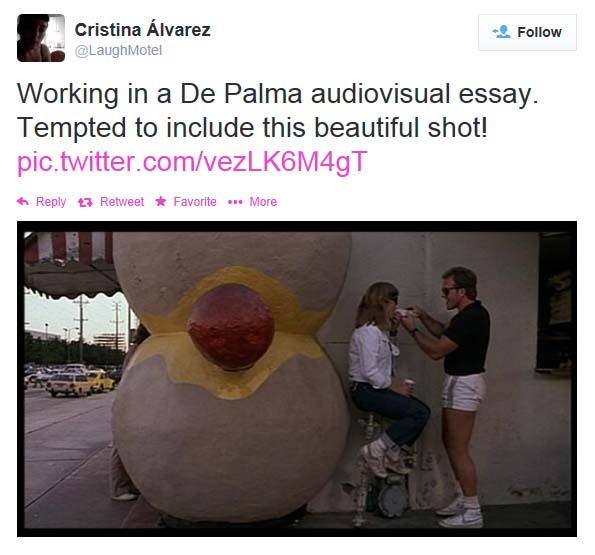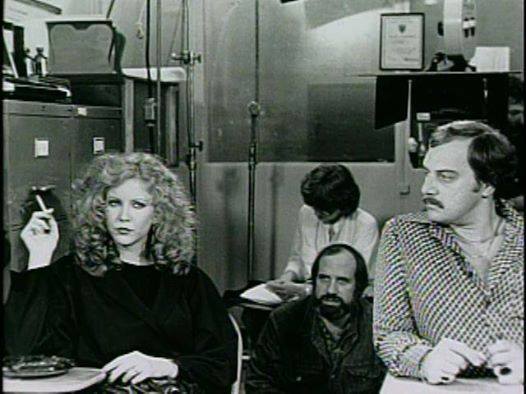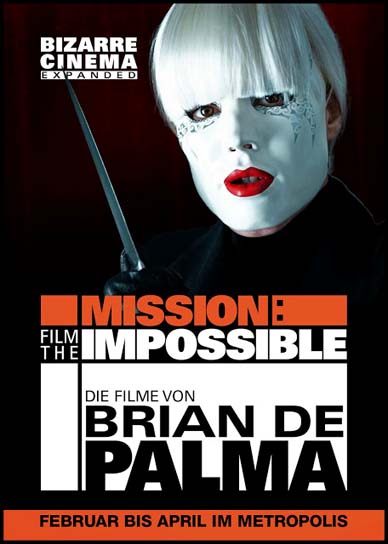VIDEO: DE PALMA VISITS SCORSESE IN 1988
ALONG WITH JAY COCKS, AS SCORSESE EDITS 'LIFE LESSONS'Thanks to Antonios for pointing us toward the video above, which is part two of seven of a cinéma vérité documentary,
The Scorsese Machine, following
Martin Scorsese as he edits
Life Lessons with
Thelma Schoonmaker in 1988.
The Scorsese Machine, released in 1990, is part of a French documentary series called
Cinéma, de notre temps ("Cinema, Of Our Time"). At the beginning of the clip above, on November 17th, 1988, Scorsese and Schoonmaker are visited in the editing room by her husband,
Michael Powell, who arrives to celebrate Scorsese's 46th birthday.
Later in the clip, Brian De Palma and Jay Cocks visit Scorsese a day later to have some cake and celebrate. De Palma mentions to Scorsese that he begins mixing in January, and we can surmise that he is talking about Casualties Of War, which would be released the following summer. The three begin to discuss Scorsese's next picture, which ended up being GoodFellas, although that might not necessarily be what they thought might be his next picture at the time. But when Scorsese is asked if it will be a New York picture, he replies, "I don’t know, it might have to be Chicago." Then he starts laughing, pointing toward De Palma, who had just had great success the year before with a gangster picture shot in Chicago, The Untouchables. "Or maybe Toronto," says De Palma. Scorsese replies, "Toronto is a problem because it’s so clean." (A New York Times obituary of former New York film commissioner Richard Brick, who died this past Wednesday, explains that around this time, "the cost of shooting movies in New York had driven both independent and big-budget studio filmmakers to seek alternative locations, even when authenticity would seem to have been called for.")
When Scorsese tells the camera that he had mistakenly told them yesterday that he was 47 years old (he was 46), De Palma is reminded of something he "found out," and wants to tell Scorsese and Cocks. And when he starts whispering it, Scorsese says, "No-- you say that on the camera." De Palma shakes his head, saying, "No, you can't tell anybody." It sounds like he's saying something about Steven Spielberg, who would have been turning 42 exactly one month later. Scorsese mentions that "he" [Spielberg] came by a few weeks earlier. A couple of years later, Scorsese would make Cape Fear with Spielberg producing.
You can watch the entire documentary in easy order at The Playlist.
 A little late to the table on this, but it turns out that that Brian De Palma/Scream Factory interview last week (which actually took place April 3rd) was conducted by the Swan Archives' Principal Archivist. On the Swan Archives News page last Thursday, the Archivist posted, "Mr. De Palma spent some time talking Phantom today with our Principal Archivist (who is co-producing Scream's disc) in New York City. Excerpts of the discussion will appear as an extra on the disc, for which a lot of other new material is being prepared as well!" The Archivist, of course, also played a big part in the Arrow Video Blu-ray of Phantom, which was released in February. Looks to continue to be a great 40th anniversary year for this De Palma classic!
A little late to the table on this, but it turns out that that Brian De Palma/Scream Factory interview last week (which actually took place April 3rd) was conducted by the Swan Archives' Principal Archivist. On the Swan Archives News page last Thursday, the Archivist posted, "Mr. De Palma spent some time talking Phantom today with our Principal Archivist (who is co-producing Scream's disc) in New York City. Excerpts of the discussion will appear as an extra on the disc, for which a lot of other new material is being prepared as well!" The Archivist, of course, also played a big part in the Arrow Video Blu-ray of Phantom, which was released in February. Looks to continue to be a great 40th anniversary year for this De Palma classic!




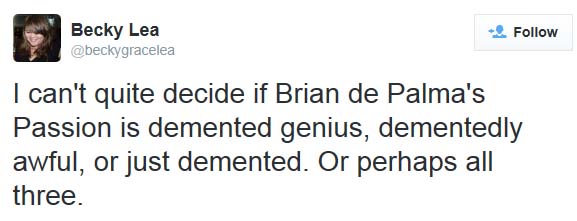
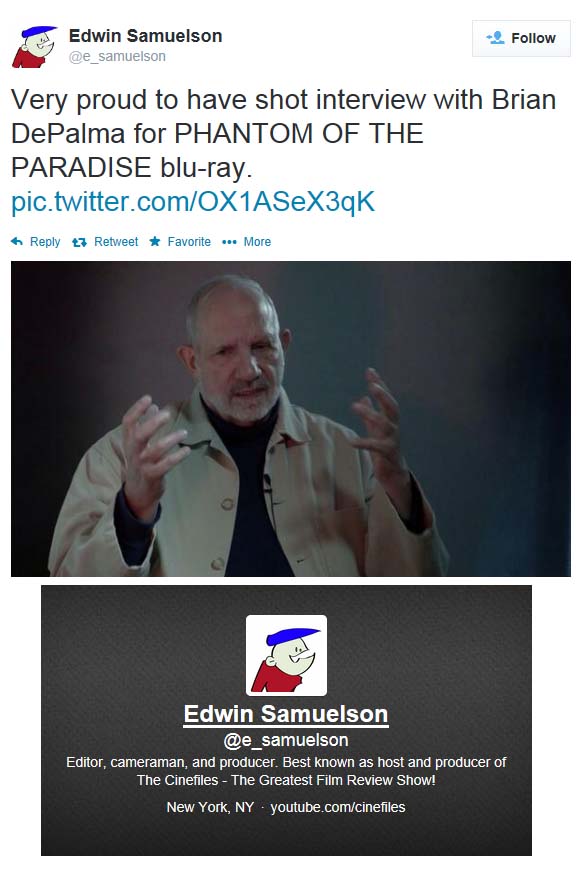
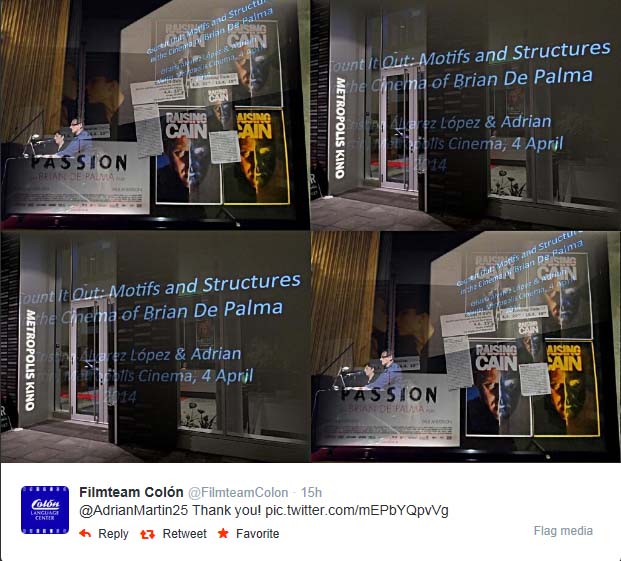

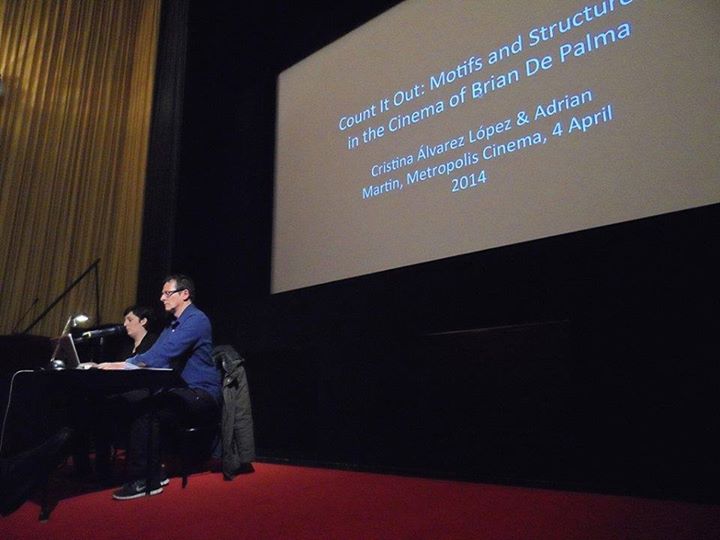
 Earlier today, on its
Earlier today, on its 